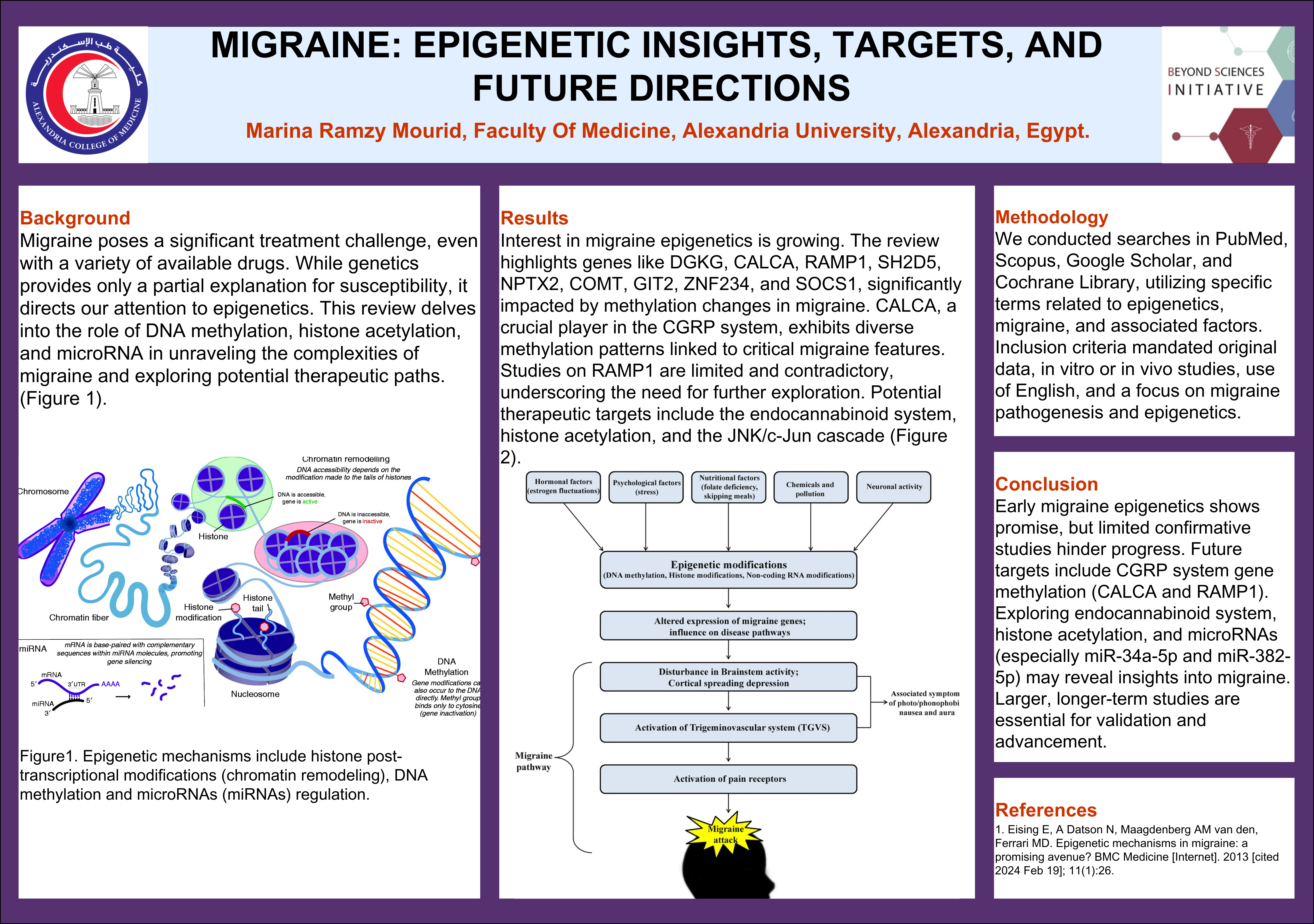Marina Mourid
Conference 2024 Poster
Poster Title
Migraine: Epigenetic Insights, Targets, and Future Directions.
Authors and Affiliations
Marina Ramzy Mourid
Affiliation:
Faculty of Medicine, Alexandria University, Alexandria, Egypt.
Abstract
Background
Migraine, a complex neurological disorder, poses a significant burden despite therapeutic advancements. Current drug classes offer limited success, reflecting incomplete understanding of migraine pathophysiology. While genetics provides minor insights, recent focus on gene regulatory mechanisms, specifically epigenetics, presents a promising avenue for unravelling migraine complexities. This review explores the role of DNA methylation, histone acetylation, and microRNA in migraine pathogenesis, emphasising potential therapeutic targets.
Methods
We conducted searches in PubMed, Scopus, Google Scholar, and Cochrane Library, using specific terms related to epigenetics, migraine, and associated factors. Inclusion criteria mandated original data, in vitro or in vivo studies, use of English, and a focus on migraine pathogenesis and epigenetics.
Results
Epigenetics’ role in migraine gains attention, evident in a growing body of experimental and in vivo studies. DNA methylation, histone acetylation, and microRNA changes are key focus areas. Specific genes, impacted by methylation, show correlations with migraine characteristics. Contradictory and limited data surround specific gene’s epigenetics, demanding further exploration.
Conclusions
Migraine epigenetics, though in early stages, presents promising data. Studies, often small-scale and inconsistent, exist, particularly in animal models. Noteworthy targets include specific gene methylation and pathways. MicroRNA studies offer insights into migraine nuances. Ethical concerns, like epigenetic engineering, arise with advancements. Larger, longer studies are essential for validation and practical application, aligning with personalised medicine trends.


Leave A Comment